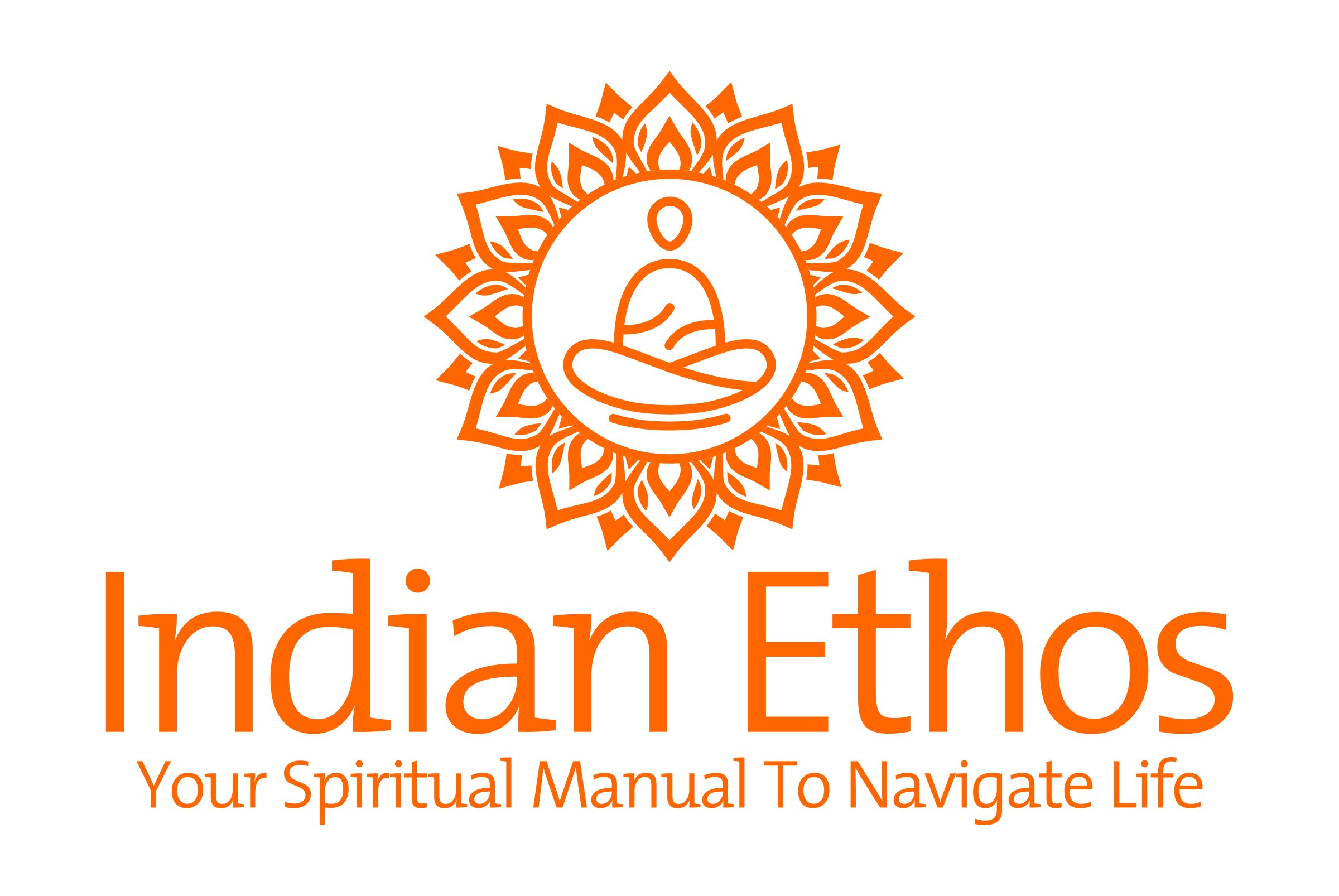The philosophy of Indian Ethos is undoubtedly counted as one among the most efficient ways of Management, advocating
implementation of the learning from the Hindu Culture, Vedic Wisdom and other Indian Values in dealing with all the issues at professional as well as personal front. The key to the Management through Indian Ethos is The Holistic view of life ie looking at everything in totality without compromising the human values at the cost of overly ambitious professional goals. This not only guarantees success and a win – win situation for all in present, but also prepares a solid foundation for a sustainable business in a long term horizon. The solution of every problem as per Indian Ethos lies in one’s capability to address it in an integrated approach with holistic view. Such an approach believes in identifying the root cause of a problem and then solving it rather then going over it superfluously and trying to kill or suppress its short term symptoms.
Its like Ayurvedic medicine, which takes care of an illness by addressing the root cause of the problem leading to holistic health of a person, unlike allopath- which addresses only the symptoms of a disease and is inefficient at curing it permanently by removing the ultimate root cause of the disease.
It is because of this reason the term Indian Ethos Management (IEM) is referred to as ‘Management through Wisdom’ also called ‘Vivek Management’ in Hindi.
Goal is to achieving a way of life where every thing works in harmony with each other leading to overall and natural development of all towards excellence. Following are some of the concepts of IEM or Management through wisdom which clearly defines a paradigm shift in the approach as earlier given to us by western style of management:-
- Result Oriented Vs Process Oriented:- Indian Ethos focuses more on a process oriented work culture rather than a result oriented work culture. It says the means to achieve an end is as important as the end itself. Today various corporate houses evaluate their employees on the basis of the performance indicators reflecting in the annual business figures, but they fail to understand the value of means and ways deployed for achieving those figures, which is more important to sustain the business performance year after year.
IEM says that long term sustainability of any business depends totally on how robust its processes are, and whether the company depends on external market environment & customer demands to achieve its business goals or it has really laid down certain set of processes, certain marketing and promotional campaigns, trained and developed its employees for a long term commitment to automate and repeat the business goals in long run.
If the processes are strong and robust, if the employees are motivated and committed to follow those processes, if ethics are the core values of a company, it is bound to succeed in long run irrespective of the challenges of the external market. We do not have control over the market and the economy of the nation, but we do have capabilities to strengthen our own processes and prepare ourselves to cope up with the changes in the market scenario. ‘Karma Yoga’ – from the vedic scriptures teaches us to not to be attached and obsessed with the desired results, but on the other hand prepare and take all required action to achieve those results without any fear of failure. This is, what the difference between a result oriented approach, and a process oriented approach. Employees of a company with just a result oriented approach, where results are desired by hook or crooks, always work in fear and may not be able to take any action because of the fear of failures and criticisms. On the other hand a process oriented approach always drives an employee to take action and move forward with a firm determination and never give up until he succeeds.
- Cooperation Vs Competition;- Scriptures from the Indian Ethos advocates the concept of ‘Paraspar Bhav Yantah’. It is believed that upliftment of the whole society can never be achieved by competing but can only be achieved by collective efforts of all cooperating with each other, trying to do better than their previous self progressing towards manifesting excellence. This will happen only when we will stop depending on others weaknesses for our success, when we will stop pulling others’s leg for getting ourselves in an illusion of comforts, when we will only collaborate and cooperate with others to leverage each others strengths and expertise.
- Job Enrichment Vs Mind Enrichment:- It is one of the habits of mind to always seek newer objects for feeding its sensory organs. Mind cannot perform monotonous jobs for a longer period because of its very nature of seeking variety in every thing. Its because of this reason, one enjoys a movie with a fast paced story progressing every fifteen minutes towards a new plot.
Job Enrichment is one of the good initiatives taken by modern style of management to cope up with this habit of mind. In this case domain of job responsibilities are increased and more authority and powers are assigned to the employee so that he is kept motivated for his job all the time.
Indian Ethos on the other hand have another good line of thought- where almost all the ancient Hindu Scriptures advocates the purity of mind before taking up any important assignment. This is obviously to ensure that the goals desired for that assignment are achieved, and one may not loose sight for his goals in the midway itself. Apart from it practices which help in controlling our minds are cultivated. As per vedic scriptures, mind is an important and a very good tool, which one may use to achieve his goals in life. The only catch is that he himself must not be used by the powerful mind. Famous Patanjali Yog Sutras guiding one to practice Ashtanga Yoga for achieving its ultimate stage of super – consciousness has prescribed two very important steps to achieve before taking it to advanced steps. These are ‘Yama’- Purity of Mind & ‘Dhyana’- Meditation to achieve concentration of mind. We can also call it and define it as Mind Enrichment.
If a person has control over his mind and is self motivated, he does not need an external stimulus to do his work. On the contrary he motivates others by setting himself as a benchmark for them. Indian Ethos believes as we do not have control on the incidents of ever changing world, then the only option that is left with us is to fine tune ourselves, introspect, review and act on our own strategies to achieve a goal. This is achieved only if we have cultivated a habit of mind enrichment where no external stimuli can affect our attitude & willingness to succeed in our assignments. This is what is called Skills in Action – ‘Karmasu Kausalam’.





You may also have a look at the book “Indian Ethos and Values in Management”, published by McGrawHill India.